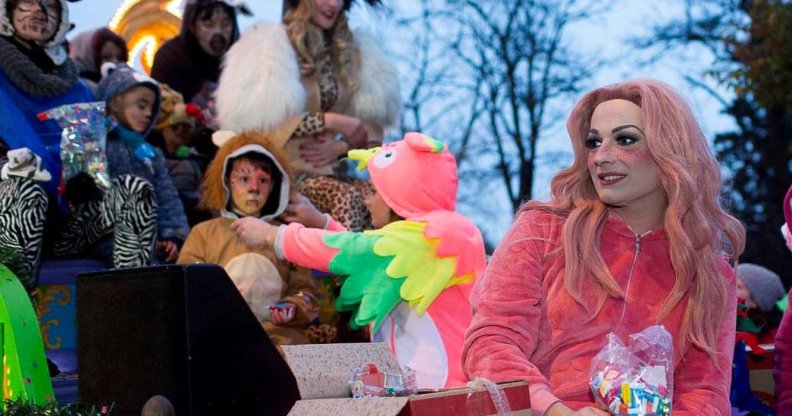A drag queen joined Madrid’s Three Kings float, and traditionalists couldn’t handle it

The Three Kings are arguably more popular than Father Christmas in Spain.
That’s why everyone gets so het up about the Feast of Epiphany parade, which sees The Three Kings shower festivalgoers with gifts as they encircle Spanish cities at dusk.
But when Madrid decided to up the ante and add some more glamour to the proceedings by asking a drag queen to join the fold, traditionalists couldn’t quite handle the royal glow-up.
The Kings, which consisted of Drag queen La Prohibida, actress and cabaret dancer Roma Calderón and hip hop artist Dnoé Lamiss on the float in the Puente de Vallecas parade didn’t just get attention because they were all women – it’s because some conservative groups didn’t consider them to be “traditional” enough.
Esta es la carroza que ha creado tanta polemica en Vallecas. #CabalgataDeReyes
Gana la diversidad y el respeto. Ganamos los periodistas que no vamos insultando a los otros. Ganan los niños y gana un sociedad de iguales. @orgullovallekas @la_prohibida @CarlaAntonelli #Vallekas pic.twitter.com/Jcrlwp4e7f
— Diario16plus (@Diario_16) January 5, 2018
“Let’s treat the Christian religion with the same deference and respect that treats the rest,” said Jose Luis Martinez-Almeida.
“All fights for civil rights should be fought publicly but the Three Kings Parade should remain what children know it as, a Three Kings Parade,” wrote Begoña Villacis, a city councilor for centre right Ciudadanos on Twitter.
Leader of the council Paco Pérez rubbished the claims that the inclusion of La Prohibida was religiously offensive.
“It’s not going to be a drag queen performance,” he said.
“The organizers have been careful with traditions and childhood sensibilities.”
The likes of regional parliament member of the country’s Socialist party Antonelli rebuffed Martinez-Almeida’s claims, stating that the selection of the Kings helps “raise the visibility” of the queer community.
“It’s yet another example of the diversity of Madrid,” said Carla Antonelli, a member of the regional parliament for the Socialist party.
“It helps raise the visibility of trans and LGTBI communities.”

